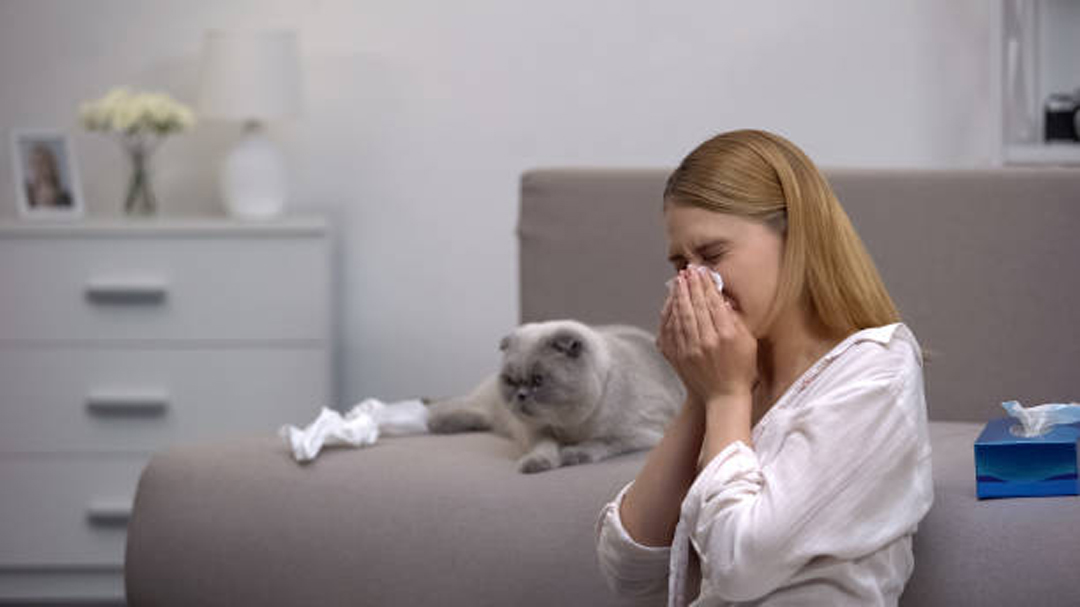
If you suffer from cat allergies, you know how frustrating and challenging it can be to be around your feline friends. While medications like antihistamines and decongestants can provide temporary relief, they only treat the symptoms, not the allergy itself.
If you’re looking for a more permanent solution to your cat allergy, you may want to consider cat allergy shots, also known as immunotherapy. In this article, we will explore what cat allergy shots are, how they work, and their effectiveness in addressing pesky cat allergies.
What is a Cat Allergy?
Cat allergies are like other allergies. They occur when the body’s natural defense system reacts to a foreign substance, flagging it as harmful even though it isn’t. These foreign substances, called allergens, can span a wide range of substances, including pet dander, bee venom, pollen, and various foods.
Your body naturally produces antibodies or blood proteins that counteract a specific antigen. When your body comes into contact with an allergen, these antibodies travel to cells responsible for releasing chemicals. This causes an allergic reaction with characteristic symptoms, including itchiness in the eyes, nose, and throat, hives, and similar symptoms.
The severity of the symptoms you experience due to your allergy varies based on factors specific to you and how your body reacts. Some individuals with cat allergies experience mild symptoms when exposed to cat dander, like a runny nose and itchy eyes. However, some individuals experience a severe allergic reaction called anaphylactic shock, which is an emergent condition requiring immediate medical attention.
Root Causes of Cat Allergies
Although many people believe cat allergies stem from a cat’s hair, this isn’t the case. Instead, the cat’s dander, saliva, and urine often cause the allergies. Dander is the most common trigger, as it can hover in the air for long stints, even if there isn’t any airflow, and cling to clothes, furniture, and other fabric.
Saliva is another common culprit, as it can also cling to clothing, bedding, furniture, and other fabrics. It can even become airborne when it dries, making it hard to escape in closed areas with cats.
How Do I Know If I Have a Cat Allergy?
Allergy symptoms mirror those of other conditions, like the common cold. However, if you have a cat allergy, you’ll likely notice a pattern in your symptoms, experiencing flare-ups after exposure to cats or areas cats have been. Common cat allergy symptoms include:
- Nasal congestion
- Running nose
- Postnasal drip
- Sneezing
- Coughing
- Red, itchy, or watery eyes
- Itchy nose, throat, or roof of the mouth
- Facial pressure or pain
- Bluish-tinged, swollen skin under the eyes
- Frequent awakening
Other symptoms may include allergic dermatitis, which causes itchy skin, eczema, and hives, and various breathing problems in people with asthma.
You can also get tested for cat allergies to confirm your suspicion. An allergist can complete a simple skin-prick test to determine whether you’re allergic to cats. With this test, a small amount of cat allergen is placed on your skin. The allergist will observe the resulting reaction, if any, and confirm or deny your suspicion of an allergy.
Cat Allergy Shots to Combat Pesky Allergies
Various treatments are available to help people deal with their allergies, including pet allergies. Doctors often prescribe various allergy medications, including decongestants, antihistamines, and corticosteroids, which alleviate the symptoms.
While these medications can work wonders in helping you feel more comfortable, they treat the symptoms, not the allergy. This is where immunotherapy comes in. Allergy immunotherapy, or cat allergy shots, focuses on the allergy.
Immunotherapy targets the allergy, using shots or under-the-tongue doses to “train” the body not to be as sensitive to a particular allergen. The treatment starts with small doses of the allergen that incrementally increase over several months or years.
The repeated exposure to the allergen slowly trains your body, allowing you to become less sensitive to the allergen, like cat dander. But do cat allergy shots work? Absolutely! While every person is different in how their bodies handle the treatment and how long it takes to see results, immunotherapy can be an excellent way to reduce your sensitivity to cats.
How Effective Are Cat Allergy Shots?
Cat allergy shots can be highly effective in minimizing allergic reactions to cats. Various studies demonstrate the notable efficacy of immunotherapy for addressing various allergies, including cat allergies.
It’s important to understand that the effects aren’t immediate. Instead, the treatment process takes time, as training your body not to be so reactive takes a while. For most people, the effects begin to show within the first year. However, the second and third years often feature the best results.
Of course, every person is different, so the timeframe before you begin to reap the benefits of your immunotherapy treatment varies for everyone. The cat allergy shots cost is well worth the benefit for many people, as this treatment can give them the opportunity to spend time with their furry companions without pesky symptoms.
Final Thoughts
Cat allergy shots can be an excellent, effective method for people suffering from cat allergies. While it takes time for the treatment to show results, the benefits are well worth the wait. These shots can train the body not to be as reactive to the allergen, allowing people to spend time with their furry companions without experiencing pesky symptoms.
With a year or two of dedication to your immunotherapy treatment, you can take strides toward spending time with cats and kittens without having to worry about an allergic reaction. If you’re considering allergy immunotherapy, speak with your doctor to determine if it’s a suitable treatment option for your allergies.

